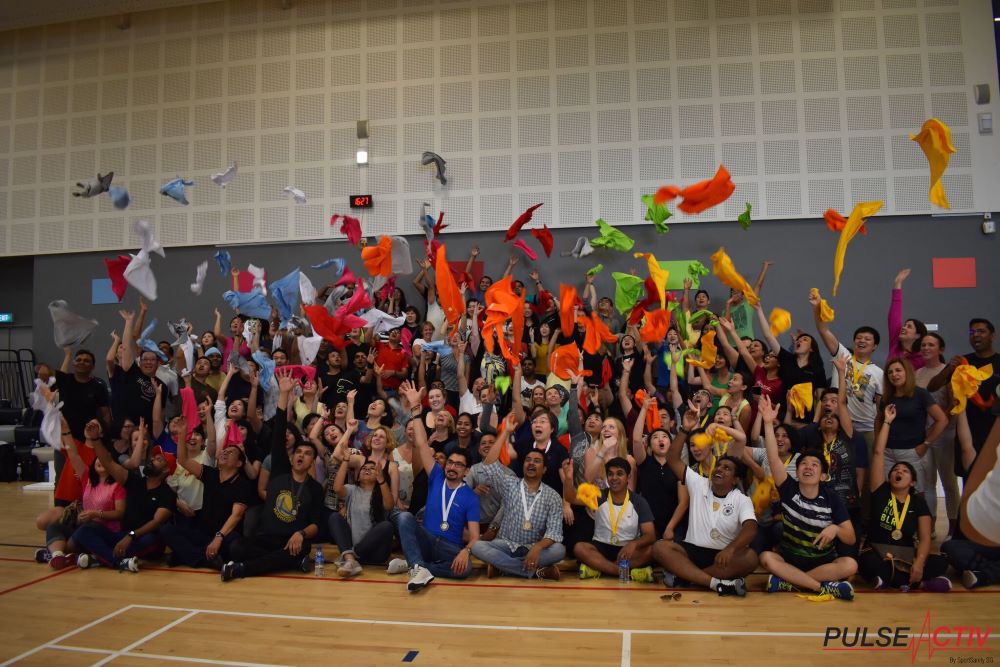The Role of HR in Crafting Memorable Corporate Events
Corporate events are more than just gatherings; they are strategic opportunities to reinforce company culture, boost morale, and align teams with organizational goals. Human Resources (HR) plays a pivotal role in shaping these experiences, ensuring that each event resonates with employees and supports the company’s broader objectives. Here’s how HR professionals can influence the planning and execution of memorable corporate events.
1. Aligning Events with Organizational Goals
HR’s primary responsibility is to ensure that corporate events are aligned with the company’s mission, vision, and values. Whether it’s a team-building retreat, a company anniversary, or a year-end celebration, HR must ensure that the event reflects the organization’s culture and strategic objectives.
- Tip: Start by identifying the event’s purpose. Is it to celebrate achievements, foster teamwork, or introduce new company initiatives? Understanding the “why” will guide all subsequent decisions, from the theme to the activities included.
2. Employee-Centric Planning
HR is uniquely positioned to understand the needs and preferences of employees. By involving employees in the planning process, HR can create events that are not only enjoyable but also meaningful and relevant.
- Tip: Conduct surveys or focus groups to gather input on what employees would like to see at the event. This can include preferences for location, activities, and even catering. Tailoring the event to employee interests can significantly increase engagement and satisfaction.
3. Promoting Inclusivity and Diversity
Corporate events are an opportunity to celebrate the diversity within the organization. HR should ensure that events are inclusive and considerate of different cultural backgrounds, dietary needs, and accessibility requirements.
- Tip: When planning, consider the diverse makeup of your workforce. Offer a variety of activities that cater to different interests and abilities, and ensure that all aspects of the event are accessible to everyone.
4. Maximizing Engagement through Creative Programming
The success of a corporate event often hinges on the level of employee engagement. HR can enhance this by curating a mix of activities that are both fun and purposeful, fostering connections among employees.
- Tip: Incorporate team-building exercises, interactive workshops, and opportunities for employees to showcase their talents. Consider adding elements of surprise or gamification to keep energy levels high and participants engaged.
5. Ensuring Seamless Execution
While creativity is crucial, the logistics of the event are equally important. HR must work closely with event planners, vendors, and internal teams to ensure that every detail is covered, from the venue setup to the event schedule.
- Tip: Develop a detailed timeline and checklist to manage all aspects of the event. Assign clear roles and responsibilities to ensure that everyone knows what is expected of them. Regularly communicate with all stakeholders to address any potential issues before they arise.
6. Evaluating Event Success
Post-event evaluation is essential for continuous improvement. HR should gather feedback from attendees to assess what worked well and identify areas for improvement.
- Tip: Distribute a survey shortly after the event to capture immediate impressions. Analyze the feedback to understand the event’s impact on employee morale and alignment with organizational goals. Use these insights to refine future events.
7. Leveraging Technology for Better Engagement
In today’s digital age, technology plays a crucial role in enhancing event experiences. HR can use technology to streamline event planning, promote engagement, and gather valuable data.
- Tip: Utilize event management software to handle registrations, send reminders, and manage logistics. Consider using apps or social media platforms to create buzz before the event and encourage interaction during the event.
8. Sustainability and Corporate Responsibility
Corporate events offer an opportunity to demonstrate the company’s commitment to sustainability and corporate social responsibility (CSR). HR can lead the charge in organizing eco-friendly events that align with the company’s values.
- Tip: Choose venues that prioritize sustainability, opt for digital invitations, and minimize waste by offering reusable materials. Incorporate CSR activities, such as community service projects, into the event to further reinforce the company’s commitment to social responsibility.
Conclusion
HR’s role in crafting memorable corporate events is both strategic and impactful. By aligning events with organizational goals, promoting inclusivity, and ensuring seamless execution, HR professionals can create experiences that not only engage employees but also drive the company’s mission forward. With thoughtful planning and a focus on the employee experience, HR can turn corporate events into powerful tools for building a strong, cohesive organizational culture.
To head back to read another article in our blog, click here.

